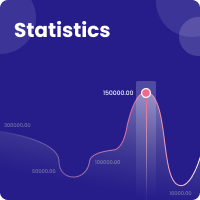Comparative Analysis of the Performance Efficiency of a Traditional vs a Progressive Web Application
Abstract
This study compares two types of web application (traditional and progressive) to determine the kind of technology that achieves a better performance quality. For that purpose, a traditional web application was developed, then configured and converted into a progressive web application. As a result, two types of application were obtained in order to measure their performance quality. This comparative analysis used the ISO/IEC 25010 standard to select the performance efficiency characteristic. In addition, it implemented the ISO/IEC 25040 standard, which establishes a process of five activities to evaluate each application, and the ISO/IEC 25023 standard, which defines performance characteristics with their respective metrics and formulas. This paper also examines the behavior of the applications in browsers compatible with service workers: Chrome, Firefox, Opera, and Edge. Several tools were used to measure the performance metrics: page load time, load time, the task manager, and development tools (all of them integrated into the browsers). The results show discrepancies in the behavior of the applications, although they presented similar metrics in terms of behavior over time and software capacity. Regarding resource utilization metrics, the progressive web application presented a higher consumption. This type of application provides a better user experience but caching and browser support can be limitations for its correct operation.
References
O. Pinzon; K. Rodríguez, “Ingeniería Web: Una Metodología para el Desarrollo
de Aplicaciones Web Escalables y Sostenibles”, en The Fifteen LACCEI International Multi-Conference for Engineering, Education Technology, Boca Raton, Florida - US7ygthA, pp. 19–21, 2017. http://www.laccei.org/LACCEI2017-BocaRaton/student_Papers/SP277.pdf
M. R. Valarezo Pardo; J. A. Honores Tapia; A. S. Gómez Moreno; L. F. Vinces Sánchez, “Comparación de tendencias tecnológicas en aplicaciones web”, 3C Tecnología, vol. 7, no. 3, pp. 28–49, 2018. http://dx.doi.org/10.17993/3ctecno.2018.v7n3e27.28-49/
F. Shahzad, “Modern and Responsive Mobile-enabled Web Applications”, Procedia Comput. Sci., vol. 110, pp. 410–415, 2017. http://dx.doi.org/10.1016/j.procs.2017.06.105
“Live Stats”, 2020. https://www.internetlivestats.com/
J. I. Xool-Clavel; H. F. Buenfil-Paredes; M. E. Dzul-Canche, “Desarrollo e implementación de un sistema web para el proceso de estadía”, Revista de Tecnologías de la Información y Comunicaciones, vol. 2, no. 3, pp. 8–19, Mar. 2018. https://www.ecorfan.org/spain/researchjournals/Tecnologias_de_la_Informacion_y_Comunicaciones/vol2num3/Revista_de_Tecnologia_de_la_Informacion_y_Comunicaciones_V2_N3_2.pdf
V. Aguirre et al., “PWA para unificar el desarrollo Desktop, Web y Mobile”, en XXV Congreso Argentino de Ciencias de la Computación (CACIC), Córdoba, 2019, pp. 778–786. http://sedici.unlp.edu.ar/handle/10915/90541
Mozilla and individual contributors, “Introducción a aplicaciones web progresivas”, 2020. https://developer.mozilla.org/es/docs/Web/Progressive_web_apps/Introduction
P. Loreto; J. Braga; H. Peixoto; J. Machado; A. Abelha, “Step towards progressive web development in obstetrics”, Procedia Comput. Sci., vol. 141, pp. 525–530, 2018. https://doi.org/10.1016/j.procs.2018.10.131
P. A. Roa; C. Morales; P. Gutiérrez, “Norma ISO/IEC 25000”, Tecnol. Investig. y Acad., vol. 3, no. 2, pp. 26–32, Dec. 2015. https://revistas.udistrital.edu.co/index.php/tia/article/view/8373
ISO/IEC 25023, “Systems and software engineering — Systems and software Quality Requirements and Evaluation (SQuaRE) — Measurement of system and software product quality”, 2016. https://www.iso.org/standard/35747.html
ISO/IEC 25010, “Systems and software engineering — Systems and software Quality Requirements and Evaluation (SQuaRE) — System and software quality models”, 2011. https://www.iso.org/standard/35733.html
ISO/IEC 25000, “Systems and software engineering — Systems and software Quality Requirements and Evaluation (SQuaRE) — Guide to SQuaRE”, 2014. https://www.iso.org/standard/64764.html
L. G. Morrison et al., “Comparing usage of a web and app stress management intervention: An observational study”, Internet Interv., vol. 12, pp. 74–82, Jun. 2018. https://doi.org/10.1016/j.invent.2018.03.006
S. Tandel; A. Jamadar, “Impact of Progressive Web Apps on Web App Development”, Int. J. Innov. Res. Sci. Eng. Technol., vol. 7, no. 9, pp. 9439–9444, Sep. 2018. https://www.researchgate.net/publication/330834334_Impact_of_Progressive_Web_Apps_on_Web_App_Development
A. Biørn-Hansen; T. A. Majchrzak; T. M. Grønli, “Progressive web apps: The possible web-native unifier for mobile development”, en Proceedings of the 13th International Conference on Web Information Systems and Technologies, Porto, 2017, pp. 344–351. http://dx.doi.org/10.5220/0006353703440351
T. A. Majchrzak; A. Biørn-Hansen; T.-M. Grønli, “Progressive Web Apps: the Definite Approach to Cross-Platform Development?”, en Proceedings of the 51st Hawaii International Conference on System Sciences, Hawaii, 2018, pp. 5735–5744. http://dx.doi.org/10.24251/HICSS.2018.718
ISO 25000, “La familia de normas ISO/IEC 25000”, s.f. https://iso25000.com/index.php/normas-iso-25000
A. J. Durán Sanjuán; J. L. Peinado Rodríguez; A. A. Rosado Gomez, “Comparación de dos tecnologías de desarrollo de aplicaciones móviles desde la perspectiva de los atributos de calidad”, Sci. Tech., vol. 20, no. 1, pp. 81–87, Mar. 2015. https://doi.org/10.22517/23447214.9278
E. F. Maila Maila, “Evaluación de herramientas Open Source para pruebas de fiabilidad y rendimiento de aplicaciones web”, (Tesis de grado), Facultad de Ingeniería de Sistemas, Escuela Politécnica Nacional, 2018. https://bibdigital.epn.edu.ec/handle/15000/19947
K. G. Rodriguez; O. J. Ortiz; A. I. Quiroz; M. L. Parrales, “El e-commerce y las Mipymes en tiempos de Covid-19”, Espacios, vol. 41, no. 42, pp. 100–118, 2020. https://doi.org/10.48082/espacios-a20v41n42p09
D. Palacios; J. Guamán; S. Contento, “Análisis del rendimiento de librerías de componentes Java Server Faces en el desarrollo de aplicaciones web”, Novasinergia Rev. Digit. Ciencia, Ing. Y Tecnol., vol. 1, no. 2, pp. 54–59, 2018. https://doi.org/10.37135/unach.ns.001.02.06
J. Keith, “HTTPS + service worker + web app manifest = progressive web app”. 2018. https://adactio.com/journal/13884
M. Santoni, “Las Progressive Web Apps: compatibilidad de las funcionalidades en función de los navegadores”, GoodBarber, 2018. https://es.goodbarber.com/blog/las-progressive-web-apps-compatibilidad-de-las-funcionalidades-en-funcion-de-los-navegadores-a592/
H. V. Nguyen; L. Lo Iacono; H. Federrath, “Systematic Analysis of Web Browser Caches”, WS.2 2018: Proceedings of the 2nd International Conference on Web Studies, Paris, 2018, pp. 64–71. https://doi.org/10.1145/3240431.3240443
Measurement Lab, “Test Your Speed”, 2021. https://speed.measurementlab.net/#/
Novabench, “Your computer at its best”, 2007. https://novabench.com/
A. Vykhodtsev, “Page load time”, 2021. https://chrome.google.com/webstore/detail/page-load-time/fploionmjgeclbkemipmkogoaohcdbig?hl=es










